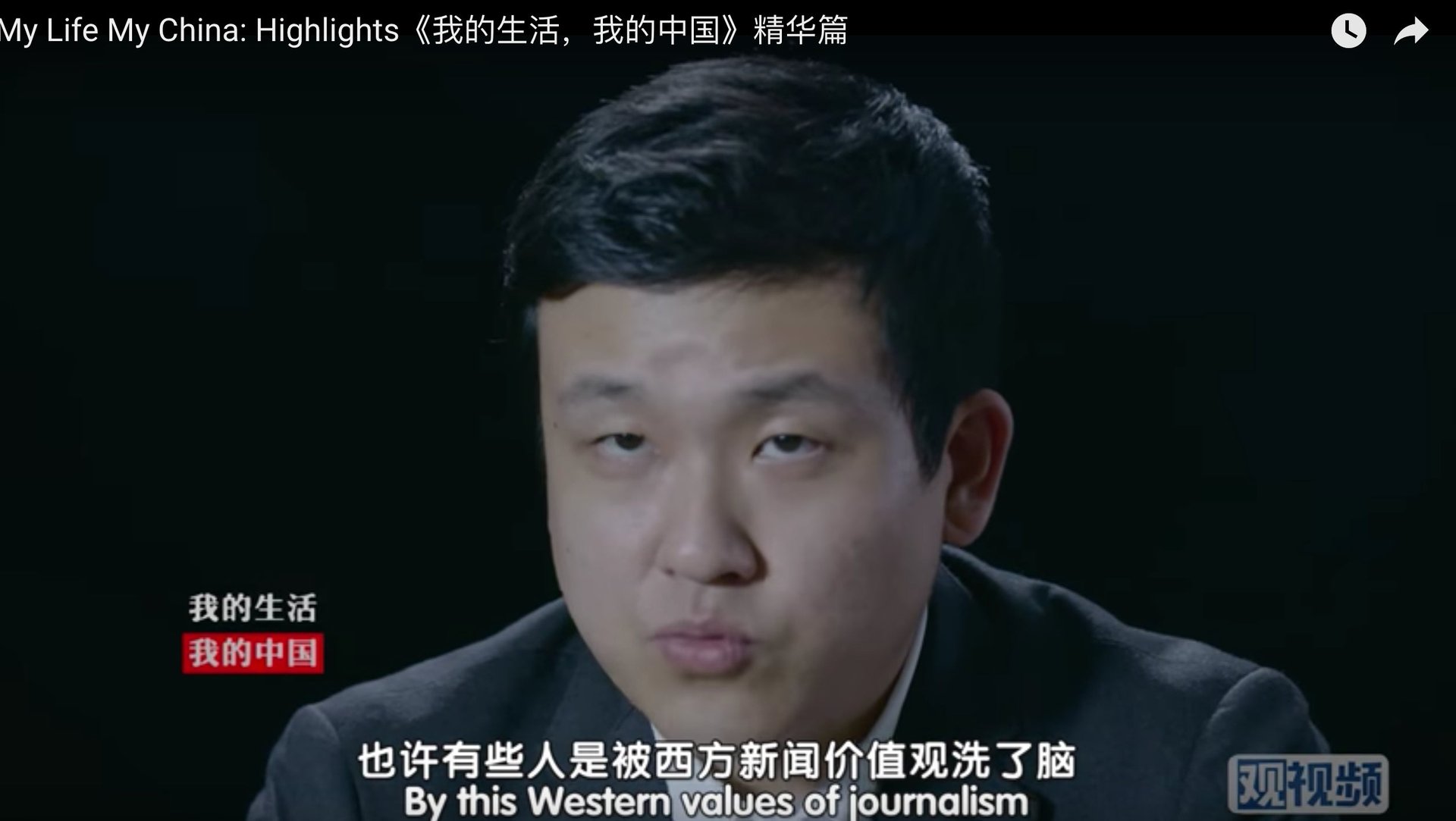China’s brightest journalists argue they’re not brainwashed, but maintaining an orderly society
Are Chinese journalists working for state media outlets simply brainwashed?


Are Chinese journalists working for state media outlets simply brainwashed?
No, according to a slew of journalists in a new, slickly produced series of videos now circulating on China’s internet. In fact, many practitioners outside the country are “brainwashed” by “Western values of journalism,” said Pan Deng, a host at state broadcaster CGTN, in British-accented English. Luo Jun, an editor at Xinhua, also threw shade at Western journalists by pointing out that New York Times reporting on weapons of mass destruction in Iraq had “turned out to be false… No one has taken responsibility for that, but half a million people have died.”
The videos, featuring some of China’s best and brightest journalists, including foreign correspondents, are being rolled out during an important annual meeting for lawmakers in Beijing, and could be seen as an attempt to bolster the legitimacy of the Chinese Communist Party. Released on March 3, the videos were produced in collaboration with Fudan University by a Shanghai-based studio called Guan Video, which has links to a political talk show hosted by the chief editor of state tabloid Global Times, Hu Xijin.
The seven-episode (link in Chinese) documentary, called My Life My China, has been made available on Weibo, a popular social network. More than a dozen journalists from state-owned media appear in the documentary to discuss their loyalty to the party and the role that media can play in the country’s development. For example, one argues that finding out the truth isn’t necessarily a categorical imperative for journalists.
“You want to report this, for what?” asked Ai Kuiyu, a fellow at the China Institute at Fudan University. “Just to reveal the truth, or you want to find the truth to help the society?”
Many were quick to dismiss the idea that there should be any conflict between being a journalist and belonging to the party, and the documentary opens with admissions by journalists that they are party members.
“The Communist Party of China story is one of the most successful stories of creating business. How so few people can change China?” asked Li Zhihui, a senior political correspondent at news agency Xinhua. His support for a one-party state was echoed by Ye Qinglin, a host at SouthEast TV, a provincial-level station, who described the party as “a group of outstanding people” who ”share the same aspiration… [to] make everyone’s life better.”
The interviewees were often emotional, too.
“Look, the damn smog!” said Wang Shanshan, a senior journalist whose place of work was not disclosed. But even smog wasn’t enough to stop her from proclaiming her love for China, as she seemingly held back tears: “It’s so beautiful.”